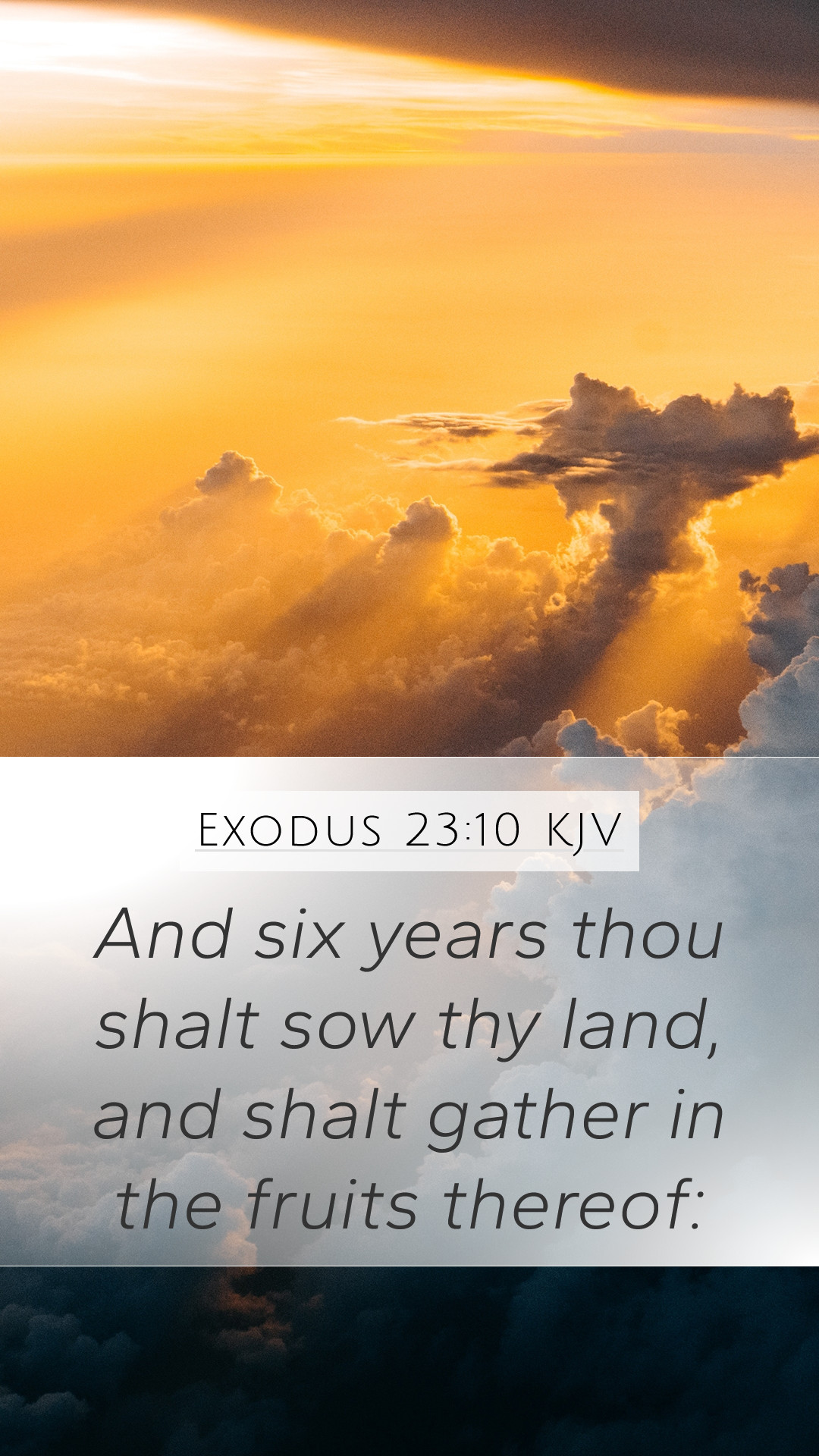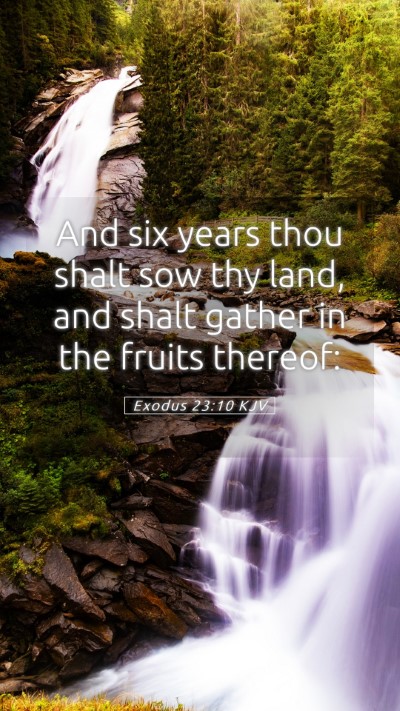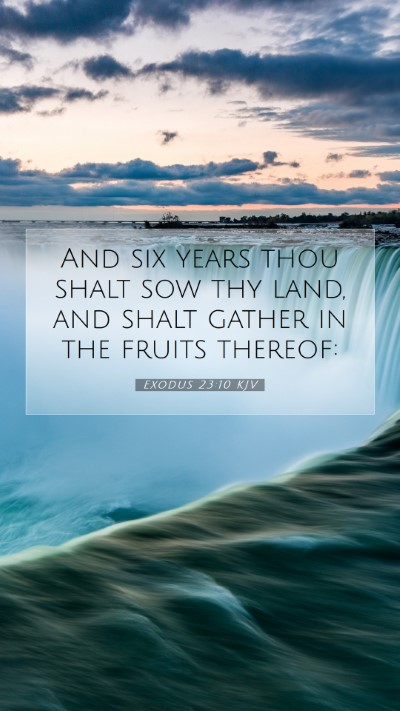Understanding Exodus 23:10
In Exodus 23:10, the Scripture states:
“Six years you shall sow your land and gather in its produce, but the seventh year you shall let it rest and lie fallow, that the poor of your people may eat; and what they leave, the beasts of the field may eat. In like manner you shall do with your vineyard and your olive grove.”
Overview and Context
This verse is part of a broader set of laws given by God to the Israelites, highlighting principles of land stewardship and social justice. It emphasizes the importance of rest for the land and care for the poor, illustrating God's concerns for both creation and community.
Bible Verse Meanings
Understanding Scripture often requires looking at the verse's implications and what it teaches us today. The teachings found in Exodus 23:10 provide several layers of meaning:
- Land Rest: The commandment for the land to rest every seventh year signifies a divine principle of sustainability. Just as humans need rest, so does the earth need periods of rejuvenation.
- Provision for the Poor: Allowing the poor to glean from the fields demonstrates God's care for the underprivileged and mandates that the wealthy provide for those less fortunate. This principle is echoed throughout Scripture.
- Ecological Balance: The instruction to allow beasts to eat from the land highlights the interconnectedness of creation, encouraging a reflective approach to agriculture that respects both nature and humanity.
Bible Verse Interpretations
Public domain commentaries provide insight into this verse:
- Matthew Henry: He reflects on the balance between work and rest, noting that God promised blessing upon the land by allowing it its due rest. This practice also meant trusting God for provision beyond traditional efforts.
- Albert Barnes: Barnes emphasizes the social justice aspect, urging believers to remember the needs of the marginalized within society and the importance of rotational farming as a means to promote ecological health.
- Adam Clarke: Clarke comments on the spiritual significance of the Sabbath principle extended to the land, suggesting that it mirrors God's own rest on the seventh day and connects the act of work with a rhythm of divine provision and care.
Bible Study Insights
This verse invites readers and Bible study groups to explore practical applications:
- How to interpret Bible verses: Approach Exodus 23:10 by examining historical context, theological implications, and contemporary relevance.
- Online Bible study: Utilize resources to discuss communal responsibilities derived from this verse, highlighting God’s principles of justice.
- Bible study lessons: Create lessons that encourage students to engage in local community service as a reflection of God's care for the poor.
Application of Exodus 23:10
As we reflect upon this verse, consider these applications:
- How can modern society implement periods of rest for agriculture to ensure sustainability?
- In what ways can individuals contribute to the needs of the impoverished in their communities?
- How does this biblical principle affect our views on consumption and resource management?
Related Scripture Cross References
- Leviticus 25:2-5: Further elaboration on the land Sabbatical.
- Deuteronomy 15:7-11: Commands regarding generosity towards the poor.
- Matthew 5:7: "Blessed are the merciful, for they shall receive mercy."
- Luke 6:38: The principle of giving and receiving.
Conclusion
Exodus 23:10 serves as a profound reminder of God's heart for creation and community. The call for rest and provision urges believers to reflect on their practices and attitudes towards work, generosity, and ecological stewardship. Through understanding Scripture and applying its teachings, we can live out the principles encapsulated in this verse.


